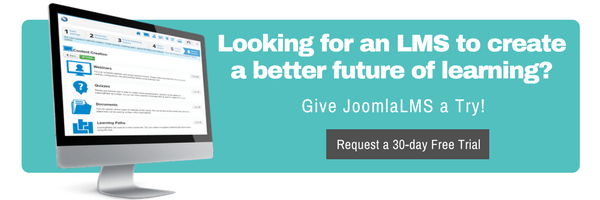Digital revolution affects education too, changing the whole learning process in so many ways. The word “e-learning” doesn’t sound unfamiliar to many of us these days. Moreover, most of us associate it with not only technological progress but also with big opportunities.
But is e-learning really as effective as it seems? Or it cannot replace classical education (at least at this point)? Let’s find it out together.
ELearning Advantages
First, let’s focus on benefits of e-learning.
1. ELearning does help save costs.
Moreover, it helps both educational institutions and students do so. Colleges don’t have to provide students with space for learning and with some additional materials for their education. Students don’t have to travel somewhere to build new skills and gain new knowledge.
While e-learning still requires teachers to record their lectures and create courses, these learning materials can be used for a long time and easily changed when the need comes. Therefore, colleges save money on instructors and professors too.
2. ELearning does make the education more available.
For some students coming to another country to study something is impossible, especially if they want only to study a certain course instead of receiving a degree. E-learning simplifies the process greatly, allowing students from all over the world to complete courses created by world’s best universities.
This benefits native students too, allowing them to communicate and study along with people coming from different cultures. Sure, there are colleges that offer multicultural experience too, but they aren’t as diverse as the online learning institutions.
3. ELearning does make students more mobile.
E-learning allows students to study from any place where they have a stable internet access. It also allows them to study at any time they find comfortable. All this not only makes the learning process easier for people living in different time zones but also allows the students to combine online education with work or getting a college degree.
Moreover, this also allows students to organize their time more effectively. For example, you can learn something on your way home in a bus or during your gym training. This means that even the busiest students could learn properly.
4. ELearning does make the whole learning process more entertaining.
E-learning technology differs from what most students are used to these days. You learn online, you are able to communicate with people in chats and forums, you can share your progress on social media, and so on. Some students like it more this way. Some simply find such change refreshing.
Many teachers know that the more diverse the educational process is, the more interesting students find it. Even if that’s only an addition to the traditional learning, this still could be a nice change.
Elearning Disadvantages
However, online learning also has the following drawbacks.
1. ELearning depends on technology a lot.
While e-learning might look like a learning tool available to anyone, in reality, it’s not. Not all people have stable internet access and computers that are powerful enough to support online streaming, for example.
Some might have all the necessary technologies but struggle with using it. For example, older students might find it hard to master all the newest tech gigs. This problem, however, can be solved by offering them some proper tutorials.
2. Some find it hard to motivate and organize themselves.
Being able to learn at a comfortable pace and organize your learning on your own is a disaster for some students. While some people are good in self-organization, some cannot do this without having a clear deadline on writing a term paper and the need to report their progress to the teacher. Some can do so but still feel better working and learning around people because it motivates them more.
3. Some students might feel isolated.
For some students college is not only the place where they can learn – it’s also the place where they come to socialize, to make new friends, and to learn something more from their professors. With e-learning, this can be hard (if not impossible) to achieve. Sure, you’ll still have online chatrooms and you’ll be able to ask your instructor questions but the level of personal connection would hardly be the same as it would in college. That’s why some students might feel isolated and deprived of support.
4. The feedback might not be enough.
The feedback is one of the biggest drivers of students’ progress. The students are able to improve only when they know their flaws and weak points.
While online instructors do give students feedback, they still might not have enough time to work with them properly, explaining every detail. This could lead to some students falling behind, having gaps in their knowledge, and not completing the course successfully enough.
Summing this up, online learning does have its pros and cons. The pros are mostly focused on the availability, low costs, and flexibility of the whole process. The cons, however, are mostly about the personal and emotional factors. Most of them aren’t critical and can be easily fixed with time.
However, while the benefits of e-learning are obvious, it’s still important to remember that not all courses can be taught online. Some education does require physical presence, working with non-digital objects and in a different environment. Moreover, sometimes only the physical presence can help students build necessary skills, both professional and social.
To my opinion, e-learning can become a great addition to the traditional learning process, making it more diverse and allowing students from all over the world to gain additional knowledge about certain subjects. However, it’s important to develop both types of educational technologies equally and learn how to combine them in a most effective way in order to get the best results.
What do you think about it? Please tell your opinion in the comment section below.
About The Author

Richard Nolan is a writer and a private tutor, sharing his experience in spheres of writing, blogging, entrepreneurship and psychology. Richard writes for numerous blogs and gives useful tips for bloggers and students. Currently, Richard works as a general blog editor for ProWritersCenter.










